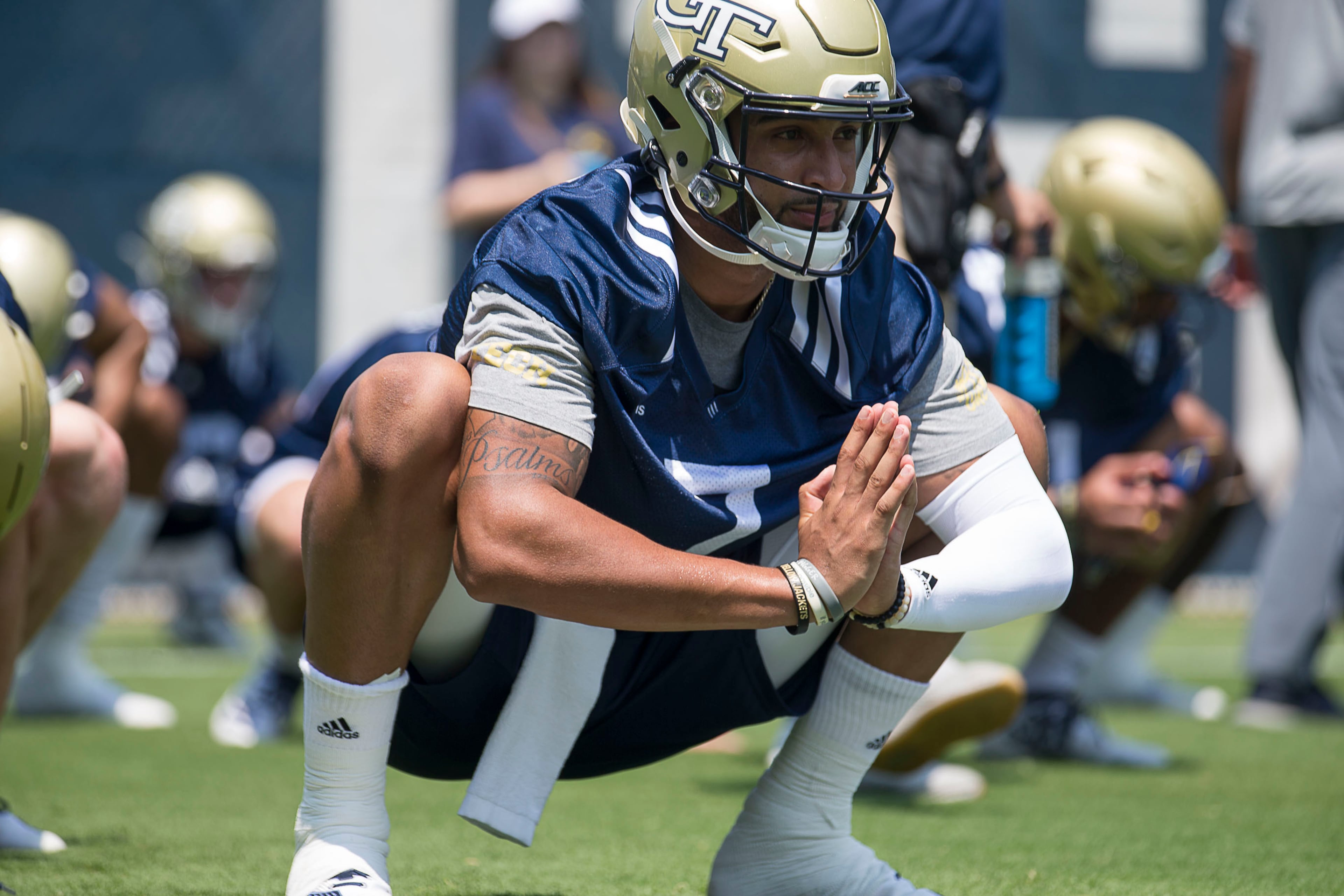Position movement already afoot at Georgia Tech


























On the first day of practice, Georgia Tech coaches already had players moving around to different positions. Coach Geoff Collins called such flexibility integral to the team’s success this season as he adjusts the roster to suit his team’s needs.
Because of shortages at wide receiver, running backs Nathan Cottrell and Omahri Jarrett were moved to play slot receiver during the first practice Wednesday. Both started the practice at running back.
“We’re going to have to (use players at multiple positions) this year to be successful,” Collins said, “and I’m just glad that the investment is there at such a high level to allow us the opportunity to do that.”
Their ability to play both could help both get on the field this season. Cottrell was at slot receiver in the spring and was to transition to running back, but suffered an injury that kept him out for the remainder of the practices. He said that he feels more comfortable playing running back, as that’s what he played growing up.
“But they’ve always just said, ‘Just be as versatile as possible, learn as much as you can, soak it up like a sponge and be available when we need you,’ ” Cottrell said. “So that’s just what I’ve been trying to do, learn both sides of that.”
Center Scott Morgan said he was moved to offensive tackle for part of practice.
“It felt different,” he said. “I’ve never played tackle in my life. It was a new experience for me.”
Tech has little depth on the line — there are 12 scholarship players along the line, not counting Jahaziel Lee, who has been working with the defensive line — and that may have driven the interest in seeing how Morgan could do at tackle.
“We’ve got to be very malleable in terms of us playing different positions because we aren’t all just locked into one position,” Morgan said.


